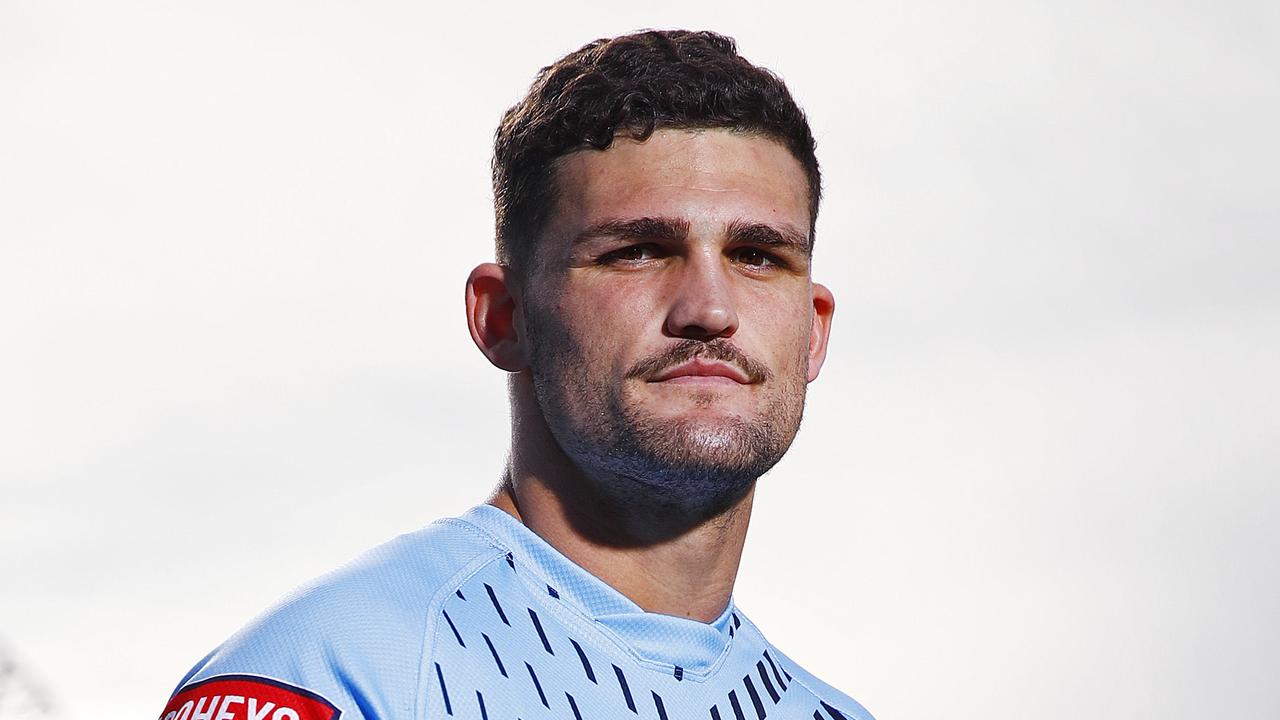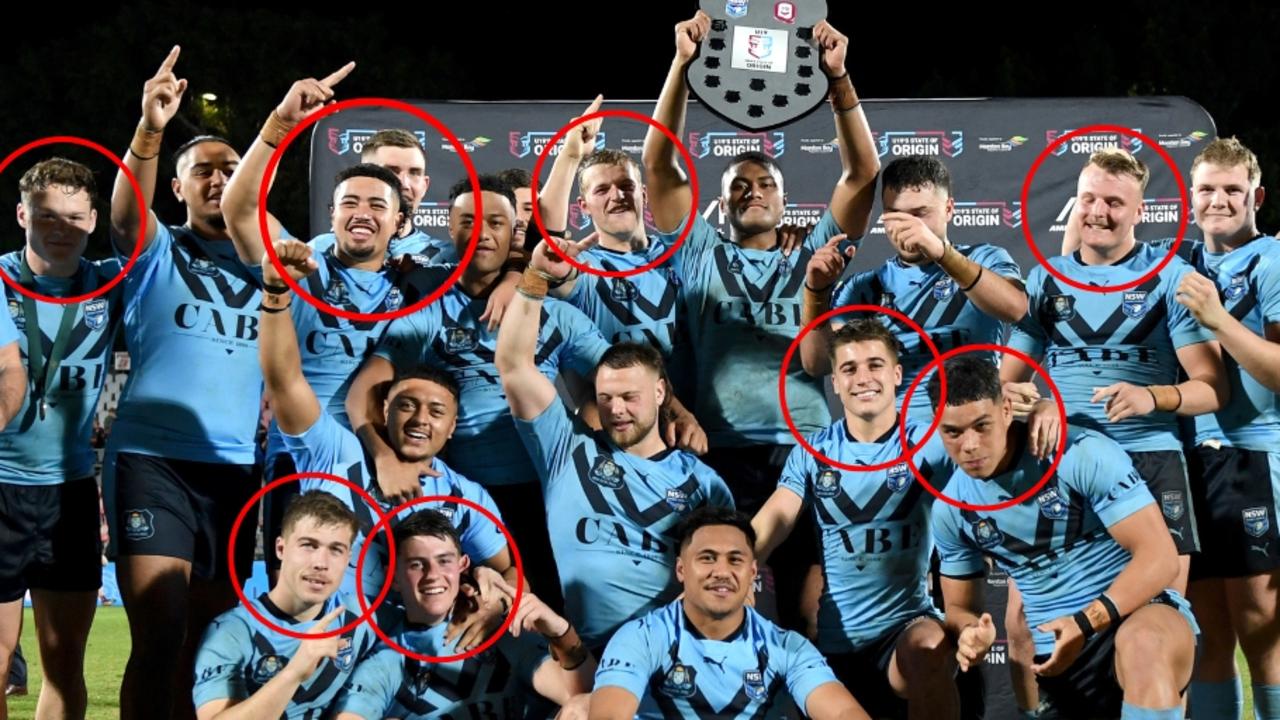Brad Fittler’s knowledge of the nature of Origin footy is key to the Blues’ success, writes Paul Kent
WHEN Brad Fittler took the job as Blues coach he set about rediscovering the Origin DNA that had gone missing in recent years, and it’s immediately led to success, writes Paul Kent.
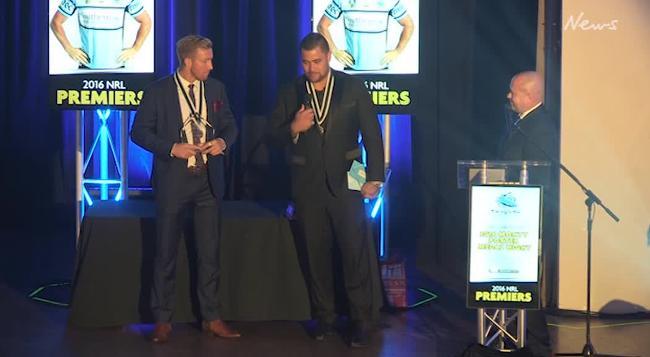
Blues
Don't miss out on the headlines from Blues. Followed categories will be added to My News.
THERE was an afternoon last year, after the series was gone, when Andrew Johns climbed the steps at Allianz Stadium and walked into the Triple M commentary box and got talking about why NSW lost and asking how they could play such dumb footy and his frustration got the better of him.
By then Johns had already caused news, in large print.
His criticism for NSW, when they did not exploit Johnathan Thurston’s busted wing in Origin II, got nods of agreement from anybody that had ever played the game except for the people that it should have mattered to most.
The Blues themselves.
GAME OVER: Tedesco determined to spoil Slater’s farewell
PICTURES: NFL giant looks down on Klemmer

Thurston hid out on the wing, lame and unable to lift his arm, but his coach kept him out there and the Blues allowed it to succeed by failing to run even a small amount of traffic at him. Queensland won by two to square the series.
Once again the series was now gone, though, and as Johns and Gorden Tallis talked a simple question came up.
RED, WHITE, BLOOPERS: The great American experiment
SPORT CONFIDENTIAL: Benji’s SOS to Robbie unites old firm
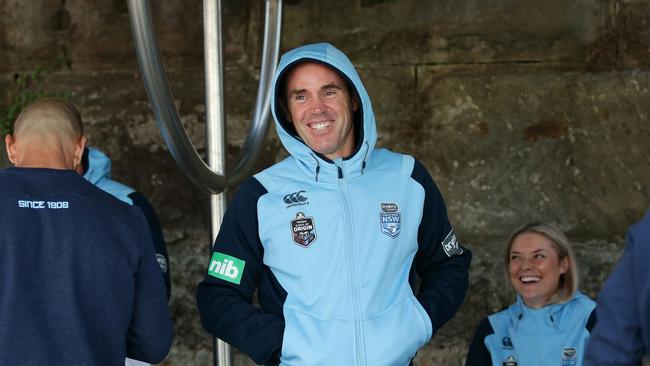
“How should NSW have played them?”
Johns shook his head in frustration and then, in the next five minutes, gave a master class in Origin football.
Somebody should have hit record on the sound machine. There was not a syllable that did not make sense.
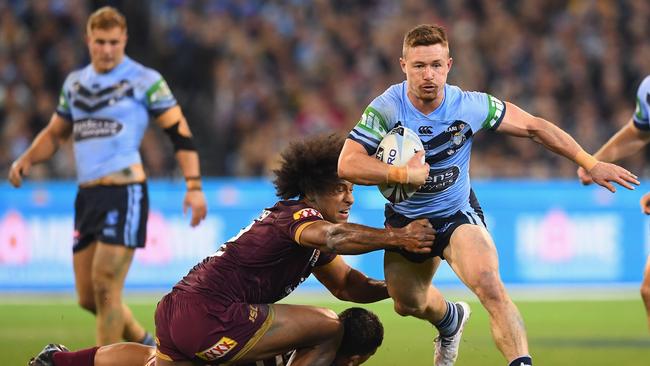
He talked about front foot footy, about playing over the advantage line.
“Warren Ryan always said ‘If you’re going to break into a house, why walk around to a side window if the front door is ajar? Kick the front door in’,” Johns said.
“But, set up for a block play after a block play …”
First of all, Johns needed you to acknowledge that Origin football is different from club football. It must be played differently.
The Blues were trying to be cute. Too often they got caught setting up the trick play, the block play out the back, unaware the money play was happening in front of them.
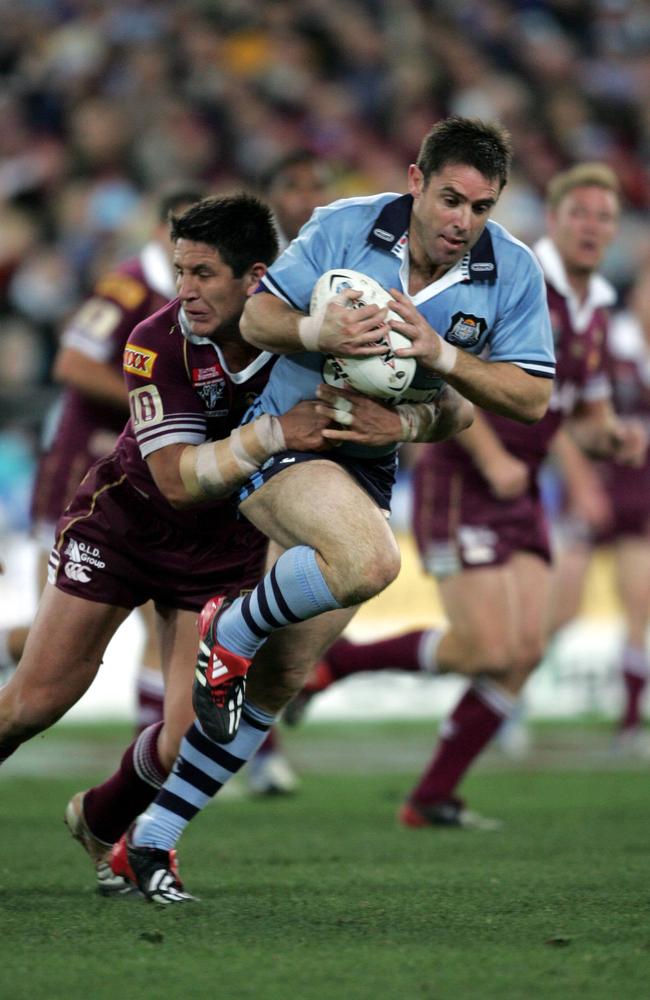
A player was playing over the advantage line, looking for support - the front door ajar - but instead of finding a support player his teammates were not even watching, too busy behind him setting up the next play - trying to find a side window.
They were playing into Queensland hands.
The Maroons were the masters at go-slow footy. Their wrestling defence slowed the game and the clockwork precision of their attack was delivered at a pace somewhat less than frantic, one that suited the Queensland players more.
NSW, trying to play their way, might as well have pre-packaged the result and deliver it to them. They played into Queensland’s hands.
It was the wrong football for the arena.
Origin is instinct.
It is played at high pace with a couple of simple philosophies to guide the team but, essentially, it is all about attack the opposition’s weakness and dulling their attack.
That’s why the best become the very best in Origin.
Wally Lewis was a great Origin player, a great Australian player. The King had far more impact at rep level than at club level. He was best when he just went and played, the greatest instinctive footballer of his time.
Structure slowed him down, made him close to normal.
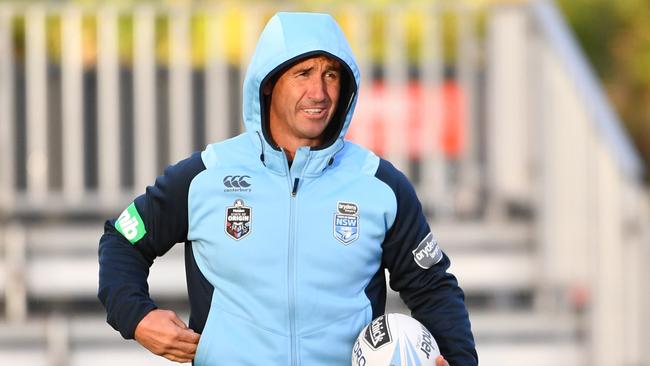
The same with NSW coach Brad Fittler. Fittler was never better than when he was going fast at a retreating defence.
And Johns was the same.
When Fittler took the job as Blues coach he set about refinding the Origin DNA that had gone missing in recent years.
He came into the job with a clear head, unimpressed at the excess and waste Origin had become.
So many small add-ons had been added to the Blues over the years, the one-percenters they successful strive for, they had gone away what it really meant.
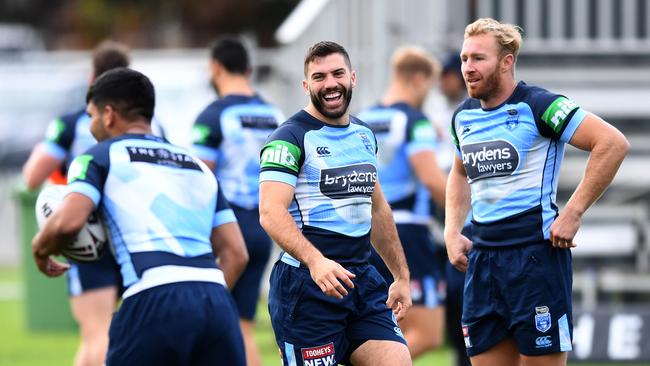
There is no point playing the cute trick play, for instance, if you have just missed the chance to support the break through the middle.
For years Fittler rode around country NSW raising money for Hogs for the Homeless and he became increasingly concerned at the amount of kids wearing Queensland jerseys.
Not because they came from Queensland. Because they liked Queensland more.
Fittler looked around and didn’t see a Blues player. They were holed up in the five-star resort on the far north coast, closer to Brisbane than Sydney.
As the Maroons made an annual trip to the Queensland bush, the Blues had surrendered all connection to their State.
It was there when players spoke about Origin.
Queensland players always pretty quickly got to what it meant to play for Queensland, how they want to win and make the state proud.
The Blues more often spoke about how good camp was, how good it was hanging out with the boys.
Fittler brought them back to Sydney. He opened them all to the media, not just two-a-day rations like in the past, and the team has never got better coverage.
But it all meant nothing if they did not get the football right.
Fittler knows the trick to Origin is fatigue.
The Blues’ gameplan in Origin I was simple. Play wide early and spread the Queensland defence.
He knew Queensland like to come with a lot of energy.
They chase kicks hard and put a lot into winning the two tackles after the kick-chase. So the Blues made them work, spreading them.
Listen below as Nick Campton, Tim Williams and debutant Joe Barton discuss the Denver/Pacific Tests, Origin Game II, NRL insights and plenty more. Be sure to Subscribe to the podcast over at iTunes.
Then, once the first indications came that Queensland was tiring, the call for “corkscrew” went out.
Play them through the middle.
Suddenly, James Tedesco and Damien Cook were the two most important players on the field, attacking the tiring Queensland middle with speed.
Their teammates’ job was to forget about the set-up play and go with them.
As simple as that, they were playing front foot footy.
Getting over the advantage line and then playing what they saw.
They were kicking the door down.
There has been a lot of talk about a new era at NSW. Win or lose, though, it remains a falsity.
An old era dawns on Sunday night.
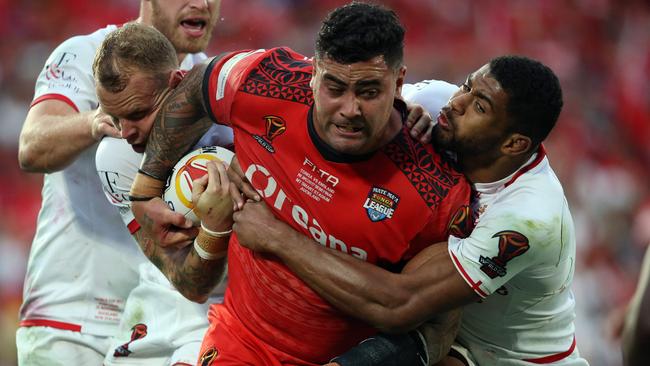
RLIF FAILING TO CAPITALISE ON WORLD CUP SUCCESS
ANDREW Fifita on Friday declared his commitment to Tonga for life.
It’s perhaps the one solid bonus for the international game of late.
As the Blues get ready to play Queensland on Sunday night without Fifita, England and New Zealand will play in Denver tomorrow (Fox League 5.30am) with one team far more committed than the other.
England are close to full strength. The Kiwis have sent their Coke Zero version — with a host of stars retiring or pulling out so they didn’t have to make the trip.
So far, the Rugby League International Federation has done nothing to capitalise on the success of last year’s World Cup, driven by Tonga.
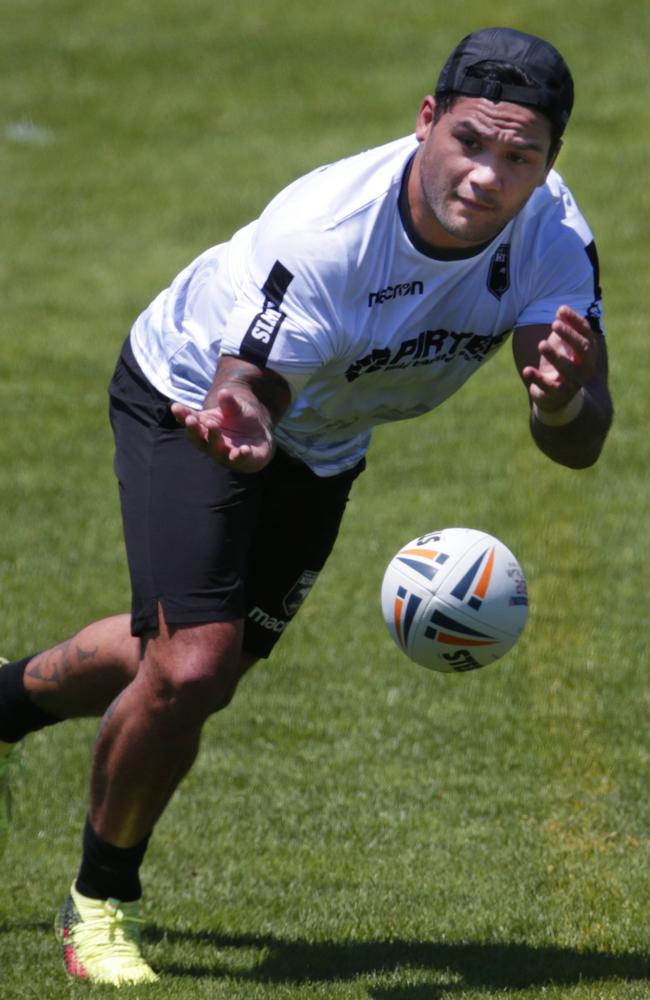
It will claim the Denver Test as evidence to contradict this claim but it takes only a little digging to reveal the Test was set up by an independent promoter who originally had the All Blacks and England playing a rugby Test in Denver until it fell apart over a dispute.
Not to worry, the promoter said, I’ll bring in the rugby league. The fans won’t know the difference.
And they won’t.
The more I see one-off matches like this — built around a supposed promotion of expanding the game — the more I realise we are being conned.
The true reason for the promotion (besides a profit for the promoter) is good publicity here locally.
If it was about growing the game, there would be follow-up plans to grow the grassroots football, but the game has neither the money nor motivation to do it.
Good publicity back here, though, gives the impression the game is on the “grow”.
Originally published as Brad Fittler’s knowledge of the nature of Origin footy is key to the Blues’ success, writes Paul Kent



